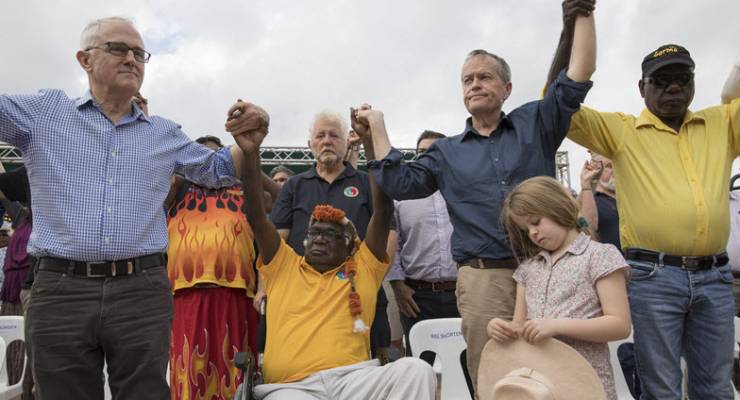
Predictable and safe public administration met provocative and contested Indigenous voices in Sydney this week — nerves of steel were highly recommended.
Try this: “I don’t care if you’re racist,” declared one Indigenous professor invited by the Australia and New Zealand School of Government (ANZSOG) to an event jointly hosted by the Department of the Prime Minister and Cabinet. Yes, I heard the sudden intake of air in the room. Public servants don’t need to be true believers, or graduates of cultural competency training, Professor Steven Larkin explained, as long as they’re doing their jobs competently from nine to five.
How about this: “What kind of Aboriginal is right for you?” asked Inala Cooper facetiously, noting how only very traditional looking First Australians are invited to stand next to prime ministers during major policy announcements. Aboriginals are everywhere, she said. Like her, they can have light skin.
“When you’re considering the work to advance Indigenous aspirations, you need to put your assumptions aside,” said Cooper. “Garma Festival is great, but why isn’t the PM down the block, up the road celebrating stuff? Why isn’t the secretary of the department at Thornbury High School talking with year 10 kids about what they’re interested in?”
One more: “Your ‘good idea’ is something that was done 20 years ago and I experienced the pain of that,” said one business owner. “How do we get in before you get your ‘good idea’, get in on the ground?”
Uncomfortable though these things may be to hear, the public servants from DPM&C were delighted. Hearing these stories is the point of such gatherings.
Given a microphone, these First Australian voices lamented the public service’s cycles of lost knowledge. The abolition of the Aboriginal and Torres Strait Islander Commission still stings for those who don’t feel they have an input into decision-making: “It feels like it’s already decided.”
Co-design takes more time, acknowledged one of PM&C’s senior Indigenous public servants, first assistant secretary Joy Savage, “but is much more sensible way to figure out if something is going to work or not. We’ve got to learn and embed to stop that top-down or centre-out approach, and learn from the experience of those on the ground.”
The shift to this approach now has the support of leaders as the default way of doing business, Savage added.
These personal stories haven’t been taken seriously in the past, suggested Dr Shawn Wilson, an Opaskwayak Cree from Canada who researches Indigenous knowledge. “Your 30 years is just your story. It’s a problem of knowledge systems not speaking to each other.”
The “Indigenous Affairs and Public Administration: Can’t we do better?” conference continues today, bring together public servants, Aboriginal and Torres Strait Islander organisations and academics from across Australia. Follow along on Twitter with #CantWeDoBetter.
ANZSOG Dean Professor Ken Smith said that development and administration of Indigenous affairs in Australia had often failed to listen to Indigenous people, and understand Indigenous culture, which had contributed to poor outcomes.
“All Australian public services need to genuinely involve Aboriginal and Torres Strait Islander peoples at all levels of policy development and service delivery. Until this happens they, and their communities, will not get the public services they need and deserve,” Smith said.
*This article was orignally published at Crikey sister site The Mandarin







“All Australian public services need to genuinely involve …….. peoples at all levels of policy development and service delivery. Until this happens they, and their communities, will not get the public services they need and deserve,”
So what? The rest of us are in the same predicament.
Gee Des, you must have had a terrible whitey’s life to say you are in the same predicament as indigenous people.
It must have been awful seeing your friends and relatives fail to receive an education, receive 3rd world health services, unable to find employment, commit teenage suicide, be imprisoned at higher rates and die earlier than others in society. Sounds like you need a society that listens your problems and ignores the ignorant and negative scorners.
Good luck with the rest of your life Des, you may need it.
Lifestyle choices? Who knew that support was melanin dependent?